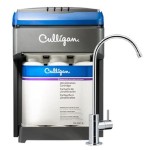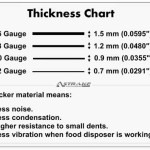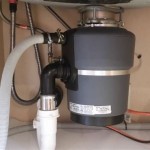Tiny Ants in the Kitchen Sink: An Infestation Guide
Discovering small ants trailing around the kitchen sink can be a frustrating experience. These tiny invaders are often attracted to moisture and food debris, making the sink area a prime target. Understanding why they are attracted to this specific location, how to identify them, and implementing effective removal and prevention strategies are crucial for maintaining a hygienic kitchen.
Why Ants are Attracted to the Kitchen Sink
Several factors contribute to the presence of ants near the kitchen sink:
- Moisture: Leaky pipes, standing water in the sink basin, or damp dishcloths provide a readily available water source for ants.
- Food Debris: Crumbs, spills, and leftover food particles around the sink area offer a consistent food supply.
- Sweet Residues: Sugary drinks, syrups, and even remnants of dish soap can attract certain ant species.
- Entry Points: Cracks and crevices around the sink, pipes, and windows provide easy access for ants to enter the kitchen.
Identifying Common Kitchen Sink Ants
While several ant species may infest a kitchen, some are more commonly found near the sink. Proper identification can assist in targeted treatment:
- Odorous House Ants: These small, dark brown or black ants emit a rotten coconut-like odor when crushed.
- Pavement Ants: Typically dark brown or black, pavement ants often nest near sidewalks and foundations, making their way indoors seeking food and water.
- Pharaoh Ants: These tiny, yellowish-brown ants are particularly problematic due to their ability to establish multiple colonies within a home.
- Ghost Ants: Pale or translucent, ghost ants are often found in warm, humid environments like kitchens and bathrooms.
Effective Ant Removal Methods
Several strategies can be employed to eliminate ants from the kitchen sink area:
- Cleaning and Sanitizing: Thoroughly clean the sink area, including wiping down surfaces, removing debris, and emptying the garbage disposal. Regularly sanitize the area to eliminate food odors and residues.
- Natural Repellents: Certain natural substances, such as vinegar, lemon juice, peppermint oil, and cinnamon, can deter ants. These can be sprayed or placed near ant trails and entry points.
- Ant Baits: Commercially available ant baits contain insecticides that attract ants. The ants carry the bait back to the colony, effectively eliminating a larger number of ants.
- Diatomaceous Earth: This natural powder can be sprinkled around ant trails and entry points. The microscopic particles damage the ants' exoskeletons, leading to dehydration and death.
- Professional Pest Control: For persistent infestations, contacting a professional pest control service may be necessary. They can identify the ant species and implement targeted treatment strategies.
Preventing Future Ant Infestations
Preventing ants from returning to the sink area requires ongoing vigilance and proactive measures:
- Seal Entry Points: Caulk any cracks and crevices around the sink, pipes, and windows to prevent ants from entering.
- Eliminate Moisture Sources: Repair leaky pipes and faucets promptly. Ensure the sink area is dry and avoid leaving standing water.
- Store Food Properly: Keep food in airtight containers to prevent ants from accessing it. Wipe up spills and crumbs immediately.
- Regular Cleaning: Maintain a clean kitchen environment by regularly washing dishes, wiping down counters, and emptying the garbage disposal.
- Outdoor Maintenance: Trim vegetation around the house to reduce ant activity near the foundation and potential entry points.
Understanding Ant Behavior
Understanding ant behavior can be insightful in preventing and managing infestations:
- Foraging: Ants typically follow established trails to and from food sources. Observing these trails can help identify entry points and nest locations.
- Colony Structure: Ants live in colonies with a queen and worker ants. Eliminating the queen is essential for long-term control.
- Seasonal Activity: Ants are more active during warmer months, seeking food and water indoors.
Choosing the Right Ant Control Products
Selecting the right ant control products is critical for effective treatment. Consider the following factors:
- Ant Species: Different products target specific ant species. Identifying the type of ant infesting the sink area can guide product selection.
- Safety: Choose products that are safe for use around children and pets. Follow label instructions carefully.
- Application Method: Consider whether baits, sprays, or powders are most appropriate for the situation.
Long-Term Ant Management
Maintaining a long-term strategy for ant control is essential to prevent recurring infestations:
- Regular Inspections: Regularly inspect the kitchen sink area for signs of ant activity, including trails and droppings.
- Proactive Measures: Implement preventative measures, such as sealing entry points and maintaining a clean kitchen, to deter ants.
- Professional Monitoring: Consider periodic professional pest control inspections to identify and address potential issues early on.

Why Do I Keep Seeing Very Tiny Ants Around My Kitchen Sink

11 Ways To Get Rid Of Ants In The Kitchen White Glove Cleaner

How To Get Rid Of Tiny Ants In Your Kitchen Miche Pest Control

Are Ants Drawn To The Kitchen Sink Green Pest Solutions

How To Get Rid Of Ants In The Kitchen Pest Pros Best Control Greater Seattle Portland

Ants In Your Pantry Gregory Pest Solutions

Say Good Rid To Ants In Your Greensboro Home

Kitchen Pests Identification Signs Of Infestation And Cleanup Strategies Gregory

Ant Control Hub Learn About Ants And How To Prevent Them

How I Stopped An Ant Home Invasion In Thailand The Wayfaring Soul







